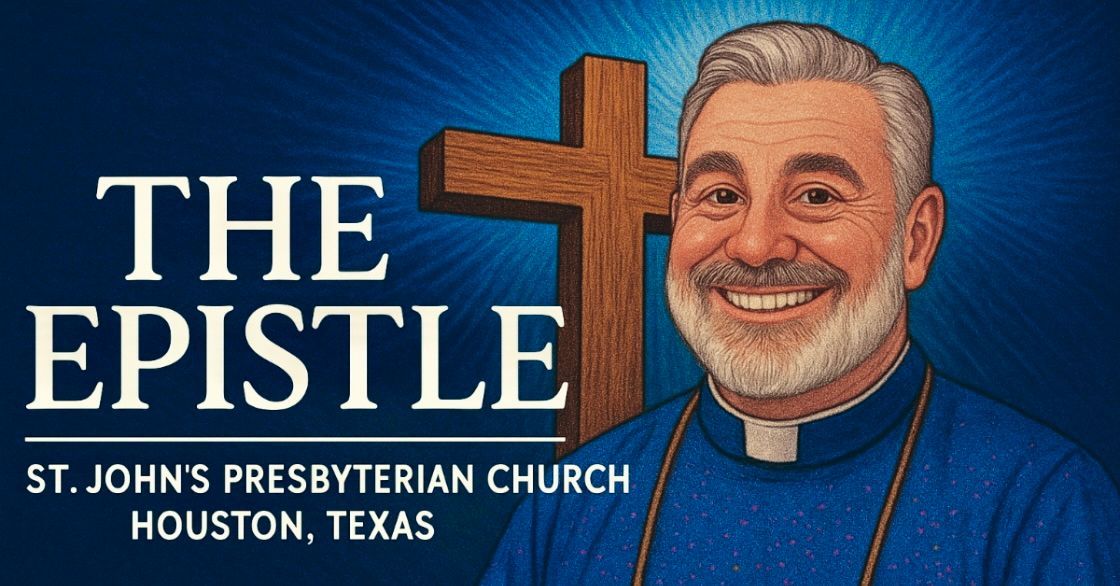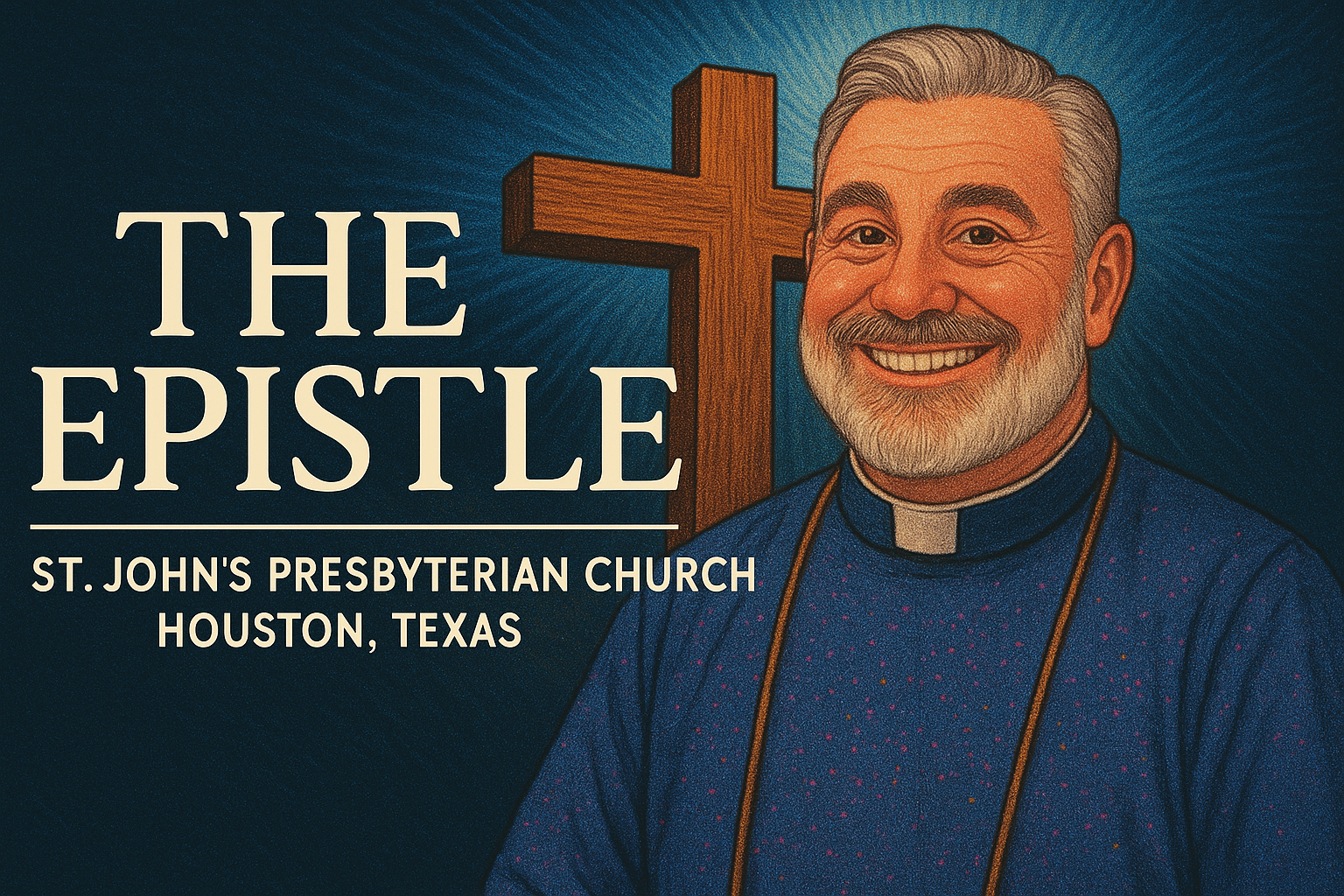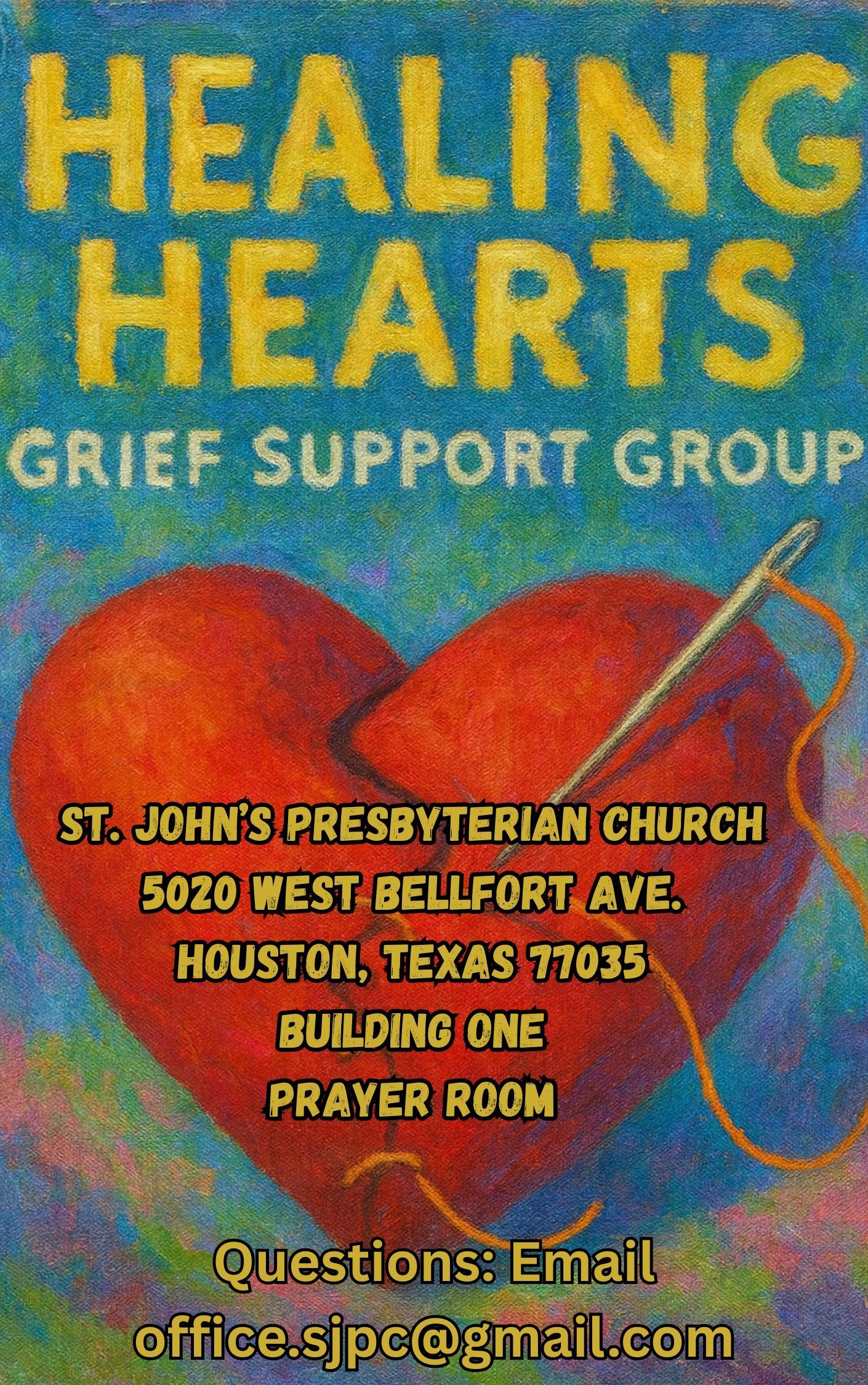Does Life have a Purpose?
Finding Your Calling at St. John's Presbyterian
I sat across from Sarah in my office last Tuesday. She's 42, successful marketing director, two kids in good schools, nice house in Meyerland. By every measure, she'd "made it."
"Pastor Jon," she said, staring at her coffee, "I just keep thinking... is this it?"
I hear some version of this question almost weekly. Usually from people who've checked all the boxes society told them to check. They got the degree, landed the career, built the family, bought the house. And now they're sitting in my office at St. John's Presbyterian wondering why it all feels so hollow.
Here's what I told Sarah, and what I want to tell you: You're asking exactly the right question. You're just asking it in a world that keeps giving you the wrong answers.
The Houston Hustle and the Meaning Crisis
Let me be honest about Houston. This city runs on hustle. We're the energy capital, the medical center, the space city. We build things, move things, make things happen. Our identity is wrapped up in doing, achieving, producing.
Drive down any major street and you'll see it. The billboards promise success, the office towers reach toward the sky, the traffic moves (or doesn't move) because everyone's racing somewhere important. We're a city that measures worth by output.
So when you start asking about purpose, Houston's default answer is pretty clear: Your purpose is to succeed. To climb. To build. To achieve. To make your mark.
But here's the problem with that answer.
It never satisfies.
Because deep down, every person created in God's image knows there has to be more to existence than just collecting achievements and waiting to die. We're wired for something bigger, something that actually matters beyond our own comfort and success.
The Presbyterian tradition has been wrestling with this question for centuries. And we've got an answer that's both simple and revolutionary. It's found in the very first question of the Westminster Shorter Catechism, written way back in 1647.
"What is the chief end of man?"
The answer: "Man's chief end is to glorify God, and to enjoy him forever."
Let that sink in for a minute.
Your purpose isn't to be successful. It's to glorify God.
Your purpose isn't to be happy. It's to enjoy God forever.
Everything else flows from that. Every decision, every relationship, every choice about how you spend your time and energy. It all comes back to this central purpose.
What "Glorifying God" Actually Means
Now, before you tune out thinking this sounds like religious talk that has nothing to do with real life, let me get practical.
"Glorifying God" isn't about walking around singing hymns all day or becoming so heavenly minded you're no earthly good. It's actually the most down-to-earth, practical purpose you could possibly have.
Think about it this way. When you glorify something, you're showing its true value. You're displaying its worth. You're living in a way that says, "This matters. This is real. This is what's actually important."
So when we say our purpose is to glorify God, we're saying our lives should display God's worth. Our choices should reflect God's character. Our relationships should reveal God's love. Our work should demonstrate God's creativity and care for the world.
This changes everything about how you approach Monday morning.
That marketing job Sarah has? It's not just about selling products or hitting quotas. It's an opportunity to display God's creativity, to serve customers well, to treat employees with dignity, to use resources wisely. When she does her work with integrity and care, she's glorifying God.
The stay-at-home parent changing diapers and breaking up sibling fights? They're not "just" doing childcare. They're shaping eternal souls, displaying God's patience and love, creating a space where little humans can learn what it means to be made in God's image.
The engineer designing better traffic solutions for Houston's congested streets? The teacher investing in struggling students? The nurse caring for patients at 3 AM? The retiree mentoring younger adults?
All of it can glorify God. All of it has purpose when it's done as an expression of who God is and how much God cares about this world.
The Enjoying Part Nobody Talks About
Here's where things get really interesting. The catechism doesn't just say our purpose is to glorify God. It says our purpose is to glorify God AND to enjoy Him forever.
That second part trips people up.
We've been taught that faith is supposed to be hard work. That following God means gritting your teeth and doing your duty. That enjoying God sounds suspiciously like it's not serious enough.
But look at what Scripture actually says. The Psalms are full of language about delighting in God, taking pleasure in God's presence, finding joy in worship. Jesus talks about abundant life, about his joy being complete in us, about entering into the joy of the master.
God doesn't want reluctant servants. God wants children who've discovered that knowing their Father is the deepest source of satisfaction available to human beings.
This is where a lot of people get stuck. They think purpose means sacrifice (it does) and that sacrifice means misery (it doesn't). They think following God means giving up the things that bring joy.
The truth is exactly backwards. Following God means discovering what real joy actually is.
I see this play out at St. John's every week. People come to faith thinking they're signing up for a life of restrictions and responsibilities. Then six months later, they're telling me they've never felt more free, more alive, more genuinely happy.
Why? Because they've stopped chasing the hollow promises of success and started living for something that actually matters. They've stopped trying to manufacture meaning through achievements and started receiving purpose as a gift from God.
How This Plays Out in Daily Life
Let me give you some real examples from our church community, because this can't stay theoretical.
Tom works in the oil and gas industry. For years, he saw his job as just a paycheck. Clock in, do the work, clock out, try to find meaning somewhere else. His real life happened on weekends.
Then he started wrestling with this question of purpose. He realized his technical skills, his experience, his position in the company - all of it could be used to glorify God. Not by preaching at coworkers, but by doing excellent work, mentoring younger engineers, advocating for safety protocols that protect workers, considering environmental impacts in decision-making.
His job didn't change. His understanding of his job's purpose changed completely. And that changed how he showed up every day.
Or take Maria. She retired three years ago after 30 years teaching elementary school. She thought retirement would feel like freedom. Instead, it felt like purposelessness. She had plenty of time but no idea what it was for.
At St. John's, she started volunteering with our community garden project. She teaches neighborhood kids how to grow vegetables, connects families with fresh produce, creates a space where people from different backgrounds work side by side. She'll tell you now that she's never felt more purposeful than she does getting her hands dirty in that garden.
Same goes for couples raising kids in this crazy city. You know how exhausting it is. The schedules, the activities, the homework, the meals, the laundry that never ends. It's easy to see it all as just survival, just getting through until... what exactly?
But when you understand that you're not just raising kids, you're partnering with God to shape human beings who'll carry God's image into the world - that changes the perspective. The diapers and soccer practices and bedtime prayers become part of your calling, not obstacles to it.
The Questions That Guide You
So how do you actually figure out what glorifying God looks like in your specific life? Here are some questions we explore in our Bible studies at St. John's:
Where has God placed you?
You're in Houston, in this neighborhood, with these particular people around you. That's not an accident. What needs can you meet right where you are? What relationships can you invest in? What problems can you help solve?
What abilities has God given you?
You've got skills, experiences, knowledge, gifts. They're not random. How can you use them to serve others and display God's character? Maybe you're good with numbers, or you connect easily with people, or you can fix things, or you write well, or you're patient with children.
What burdens has God put on your heart?
What injustices make you angry? What suffering moves you to tears? What problems keep you awake at night? Those burdens often point toward your calling. God uses our compassion to direct us toward the work He wants us to do.
Where do your passions and the world's needs intersect?
This is the sweet spot. It's not about following your dreams regardless of impact. It's about finding the place where what you love to do meets what the world actually needs. That's where you'll find sustainable, meaningful purpose.
What season of life are you in?
Purpose looks different at different stages. Young adults have different capacities than parents of young children. Mid-career professionals face different opportunities than retirees. Single people can pursue things married people can't. Be realistic about what this particular season allows.
Purpose Beyond Yourself
Here's what makes Christian purpose different from self-help purpose. It's not ultimately about you.
The secular world says, "Find your passion. Do what makes you happy. Live your best life." That sounds good until you realize it's a recipe for narcissism. It makes you the center of your own universe.
Christian purpose says something radically different. It says you exist for something bigger than yourself. Your life is meant to point beyond yourself. Your purpose is found in losing yourself in service to God and others, not in obsessive self-focus.
This is what Jesus meant when he said, "Whoever wants to save their life will lose it, but whoever loses their life for me will find it." It sounds paradoxical, but it's the deepest truth about human existence.
You find yourself by losing yourself. You discover purpose by serving purposes bigger than your own comfort. You experience joy by seeking God's glory rather than your own happiness.
I've watched this play out hundreds of times. People come to St. John's burned out from chasing success, exhausted from trying to manufacture meaning through achievements, empty despite having everything they thought they wanted.
Then they start serving in the community garden, or showing up for Bible study, or joining a mission project, or simply being present in worship week after week. They stop making life about themselves and start making it about God and neighbor.
And ironically, that's when they start to feel whole.
The Presbyterian Approach to Calling
In Presbyterian tradition, we talk about calling in several layers.
There's your
primary calling - to be a follower of Jesus Christ. This is the same for every believer. Before you're anything else, you're God's beloved child, called to grow in faith and love.
Then there's your
secondary calling - the specific roles and responsibilities God's given you. Parent, spouse, worker, neighbor, citizen. These are the arenas where you live out your primary calling in concrete ways.
We don't divide life into "sacred" and "secular." We don't think pastors have a higher calling than plumbers. Every legitimate vocation is an opportunity to glorify God. The question isn't whether your job is spiritual enough. The question is whether you're doing it in a way that honors God and serves others.
This has practical implications. It means you don't have to leave your career to find purpose. You might need to approach your career differently, but work itself is good and God-honoring when done well.
It means raising kids is just as much a calling as leading worship on Sunday morning. It means serving neighbors is just as important as serving on church committees.
It means retirement isn't purposelessness. It's a new season with new opportunities for service and growth.
When Life Doesn't Feel Purposeful
Let me be honest about something. Understanding your purpose doesn't mean every day feels meaningful. Even when you know why you're here, some days are still hard. Some seasons still feel empty.
I think of David in the Psalms. Here's a guy who knew his calling - he was chosen to be king of Israel, the one who would prepare the way for the Messiah. His purpose was literally world-changing.
And yet he still had days where he cried out, "How long, O Lord? Will you forget me forever?" He still experienced depression, doubt, confusion, waiting.
Purpose doesn't eliminate struggle. It gives struggle context.
When Sarah came back to my office a few months after our first conversation, she was different. Not because her circumstances had changed - same job, same family, same pressures. But her perspective had shifted.
"I get it now," she said. "My purpose isn't to be happy or successful or impressive. My purpose is to glorify God right where I am. Some days that looks like closing a big deal with integrity. Some days it looks like being patient with my kids when I'm exhausted. Some days it's just showing up to worship when I don't feel like it."
She paused. "And honestly? That takes the pressure off. I don't have to make my life mean something. God's already done that. I just have to live faithfully in response."
That's it exactly.
Living Purposefully in Houston
So what does purposeful living look like here at St. John's Presbyterian?
It means showing up for worship on Sunday mornings at 11 AM, not to fulfill a religious obligation, but to reorient yourself around what actually matters. It means letting Scripture and sermon speak to how you'll live Monday through Saturday.
It means joining a Bible study where you can wrestle with these questions alongside other people trying to live faithfully. It means being honest about your doubts and struggles instead of pretending you've got it all figured out.
It means finding ways to serve. Maybe that's through our community garden. Maybe it's through visiting homebound members. Maybe it's through advocating for better affordable housing in Houston. Maybe it's through mentoring a younger person. Maybe it's through bringing meals to families in crisis.
It means integrating your faith with your work. Bringing integrity to business dealings. Treating employees and customers with dignity. Using your position to advocate for justice. Doing excellent work because it reflects the God who made you.
It means being present in your neighborhood. Knowing your neighbors' names. Caring about local schools even if your kids are grown. Supporting local businesses. Working for safer streets and better infrastructure.
It means using your time intentionally. Not filling every hour with busyness, but making space for what matters. Prayer, relationships, service, rest. All of it fits into a purposeful life.
Your Invitation
Here's what I want you to understand. Your life has profound purpose. Not because you've achieved impressive things or because you're special compared to other people. Your life has purpose because you're made in God's image and called to reflect God's character in this world.
That purpose isn't waiting for you to discover it someday. It's available right now, right where you are. In your work, your relationships, your neighborhood, your struggles, your joys.
The question isn't whether your life has purpose. The question is whether you're going to live into that purpose or keep chasing the hollow promises of success and happiness.
At St. John's Presbyterian, we're a community of ordinary people trying to live purposefully in a city that often pulls us toward purposelessness. We don't have it all figured out. We're not perfect. We're just real people who worship and serve Jesus Christ with no frills.
But we've discovered that when you stop trying to manufacture meaning and start receiving purpose as a gift from God, life starts to make sense in ways it never did before.
We gather at 5020 West Bellfort Avenue every Sunday morning. We study Scripture together. We serve our neighbors. We wrestle with hard questions. We support each other through difficult seasons. We celebrate together when grace breaks through.
If you're tired of the hustle, tired of the emptiness that comes from success without purpose, tired of wondering if this is really all there is - we'd love to have you join us.
Your life has a purpose. Come discover what it is.
To learn more about St. John's Presbyterian Church and our community, visit stjohnspresby.org or call 713-723-6262. We're located at the intersection of Houston's Meyerland and Westbury neighborhoods, and we'd be honored to walk with you in discovering the purpose God has for your life.
Warning: A life of service is not for the fainthearted. But it's the only life worth living.






